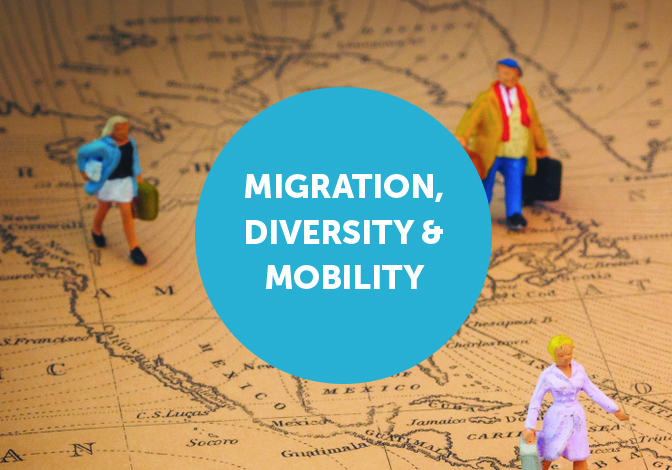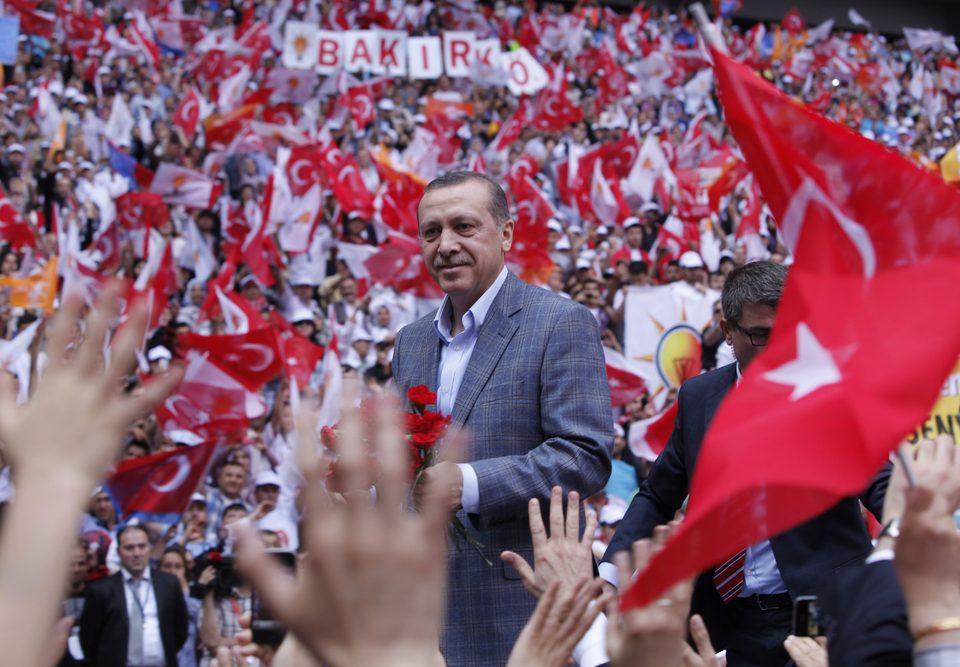


Rereading Fariba Adelkhah: On the Road from Teheran to Damascus
16 November 2020
Migration and Integration: Global Cities of the Mediterranean Region in the 18th Century
23 November 2020Social groups and individuals have always moved, more or less permanently. These moves, in all their diversity over time and space, feature many motives, trajectories, and repercussions – hence the imperative to analyse them with an equally multifaceted focus. The numerous research projects conducted at Sciences Po, particularly within the Migration and Diversity group, reflect this and seek to develop new approaches. This dossier presents an overview of their insights:
- Arrested in Tehran in June 2019, and then sentenced to 5 years in prison on the basis of false accusations, our colleague, Fariba Adelkhah has long studied a wide range of travels. In this introductory article – “Rereading Fariba Adelkhah: on the road from Teheran to Damascus” – we present one of her works, in which she reveals the unexpected dimensions of a pilgrimage of Iranian women to Damascus. Her anthropological perspective uncovers the social significance of the details of daily life.
- With his article on “Migration and integration: global cities in the Mediterranean in the 18th century”, David Do Paço presents the ways in which foreign communities have integrated Mediterranean cities in the modern era. He shows that beyond the collective factors – ‘Nations’, families, and religions… – other dimensions newly studied in micro-history contributed to the integration of immigrant populations.
- For more than fifty years, transnational travel, mainly by air, has exponentially grown. Last March, it was abruptly suspended in order to contain the global spread of Covid. Based on recent surveys, in his article “Before the Deluge Before the flood: the irreducible growth of human mobility in the world before Covid”, Ettore Recchi outlines the particular geography of our travels over the past few decades and explores the prospects for their recovery.
- Legal expert Louis Imbert’s contribution – “When Constitutional Law Imagines Foreigners” – is a cultural and comparative analysis of North American and Colombian law relating to foreigners. It presents two radically different legal policies: one based on the principle of exclusion, and the other based on the duty to show solidarity, both of which have significantly impacted our perception of immigrants, as well as their daily lives.
- Between exclusion and integration, it is also important to consider partial policies that neither accept nor refuse immigrants, but rather integrate them into the labor market, turning a blind eye to the illegal practices of recruiters. This is what Lucas Puygrenier exposes in his article “Migrant labor: policies serving production systems”, drawing on a study of the employment of refugees and asylum seekers who make it to the island of Malta.
- The impact of migration on the labor market is endlessly controversial: do immigrants form a needed labor pool, or is their competition harmful to “native” workers? This question divides both public opinion and economists. In his article on “Migration, Wages and (un)Employment”, Hélène Thiollet and Florian Oswald present many empirical studies while highlighting the elements to consider in order to build a perspective that better reflects reality.
- Citizens are increasingly mobilising to end the discrimination and systemic racism affecting immigrants and their descendants. In response, the far right is pointing to anti-white racism. To analyse the relevance of this latter concept, Daniel Sabbagh in his article ”Is There Such a Thing as “Anti-White Racism”?”, delves into the foundations of racism, or rather racisms. By focusing on their mechanisms and actual consequences, he sets the record straight.
- Highlighting the limitations an excessive research focus on the migration policies of Western states in her article “Unlocking Migration Politics: Gaps and Biases in Scientific Debates“, Hélène Thiollet calls for reinventing research on migration policies. She suggests more studies on the countries of the South as migration destinations, and most importantly, consideration of migration both as the subject of migration policies and as one of the constitutive phenomena of nation states. .
- Given the vast subject and its significance for the peaceful development of societies, it has been addressed in many research projects. We present here the approaches and methods of a sample of recently initiated projects: the politicization of Asian minorities in France, the establishment of statistics at the European level, the media treatment of migration “crises”, the role of mobility in intercultural relations and technological progress, and the outsourcing of migration policies. .




